Panique (1946)
“You don’t need a fortune teller to know the future.”
|
Synopsis: |
|
Genres, Themes, Actors, and Directors:
Review: Romance is excellent playing an unconventional femme fatale — a woman whose deep and abiding love for a criminal overpowers her growing recognition of his sociopathic nature: Indeed, we’re kept in authentic suspense throughout about whether she’ll stick with Dalvan or be swayed by sympathy for Simon. Simon, meanwhile, is perfectly cast as a self-professed loner — a man who, in addition to ordering an “extra bloody” pork loin from the butcher, admits things like, “I never chat with anyone,” “I’m always alone,” “I never vote,” and “I don’t like men.” When he opens up to Romance about his past, we learn that Simon’s mother “always preferred his brother” (who was “better-looking”), and that “at school, in the army, and at college, [he] was always excluded.” As he explains, “I didn’t choose a life of solitude — others just avoided me.” Indeed, it’s clear from the get-go that the deck is stacked against Monsieur Hire (Simon), who will inevitably be forced to take the blame for a crime he didn’t commit. Meanwhile, parallels between this film’s storyline and the persecution of Jews and other “undesirables” during the war couldn’t be clearer (especially when Hire is asked his full name and he shares that Hire is short for “Hirovitch”). The strategic inclusion of a carnival taking place throughout the entire narrative adds to a heightened sense of Hire being put on display for the town’s viewing pleasure. Duvivier — who co-wrote the screenplay with Charles Spaak — expertly moves us from scene to scene, beginning with the shocking discovery of a body, and culminating with a King Kong-inspired cliffhanger ending. This one remains well worth a look. Notable Performances, Qualities, and Moments:
Must See? Categories
Links: |
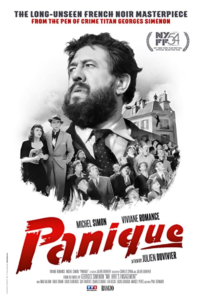
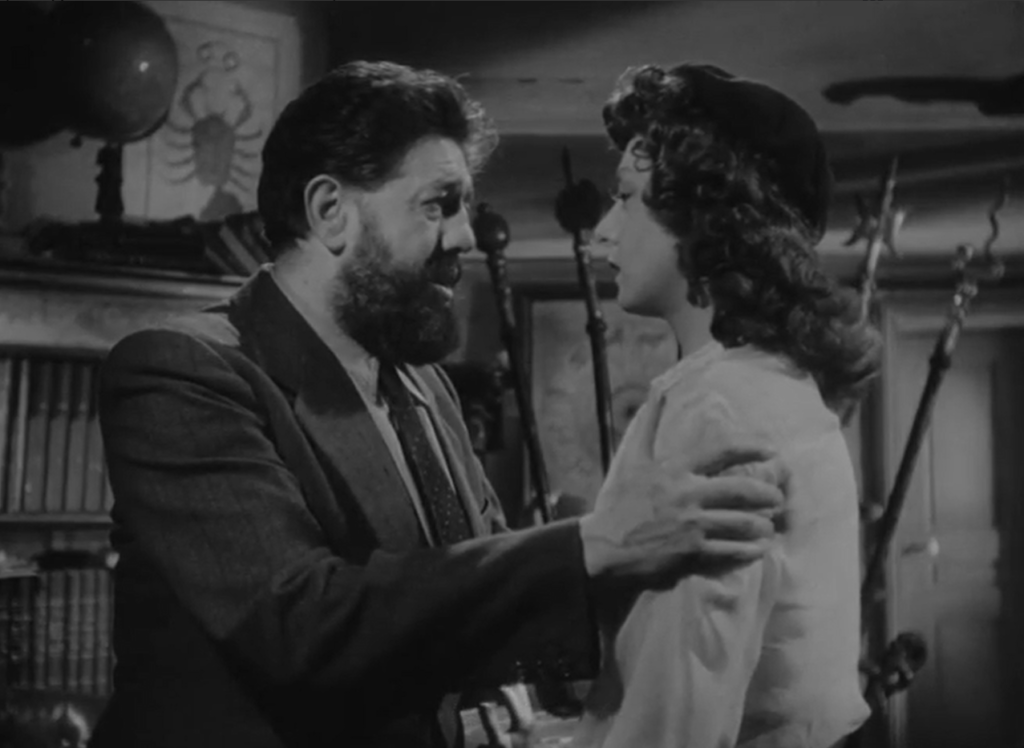
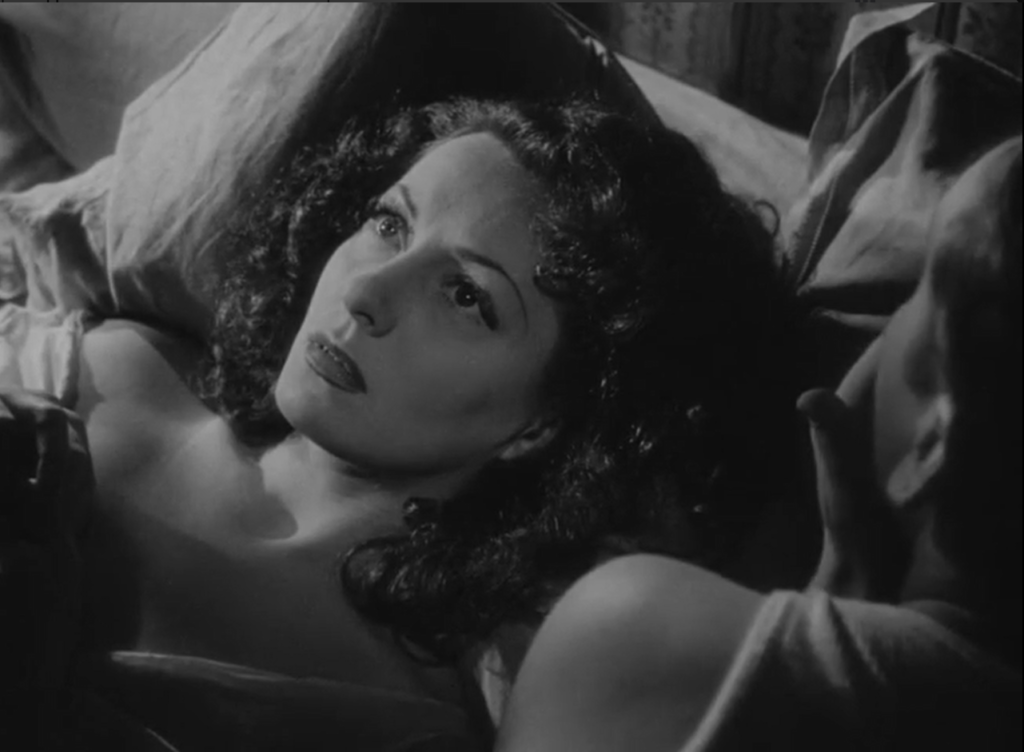
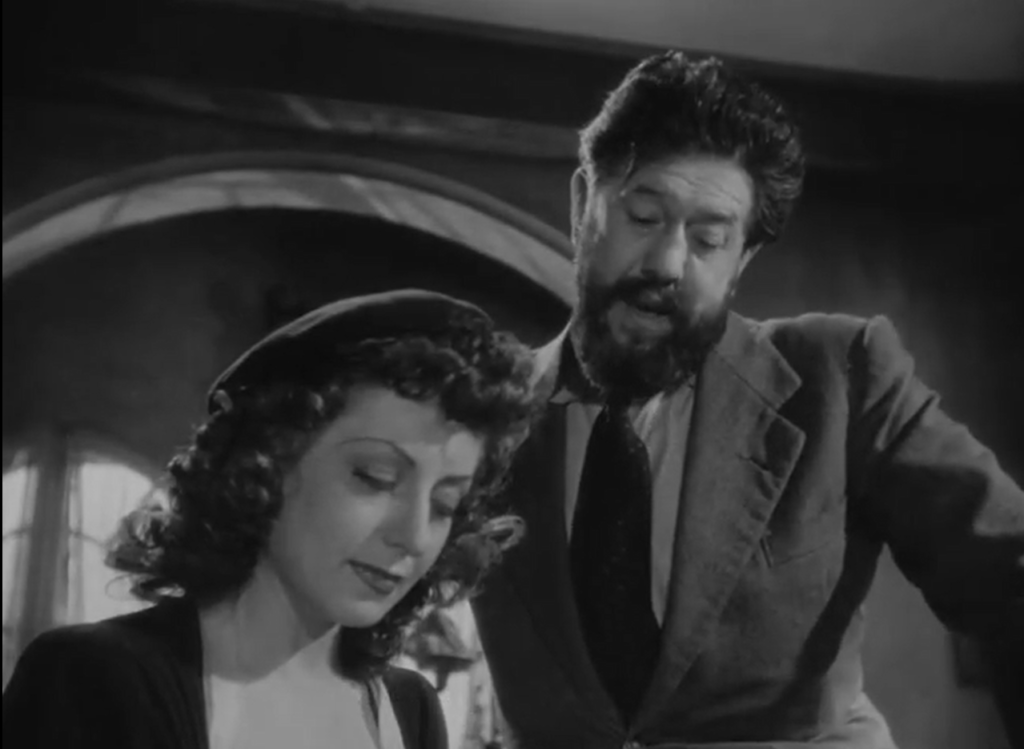
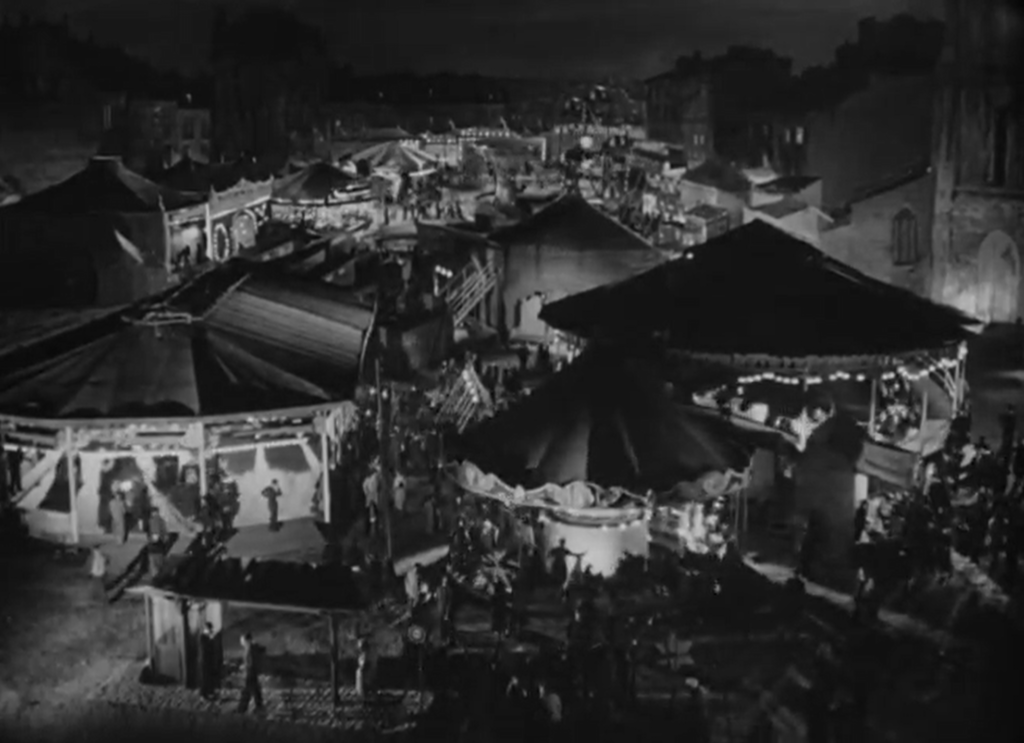
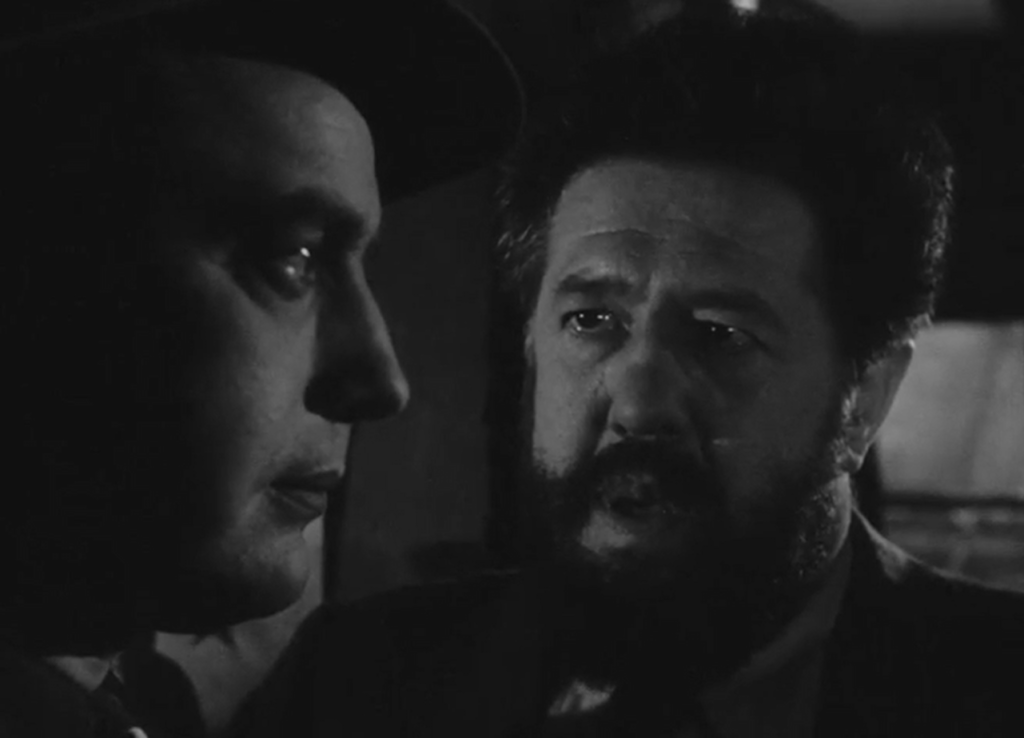
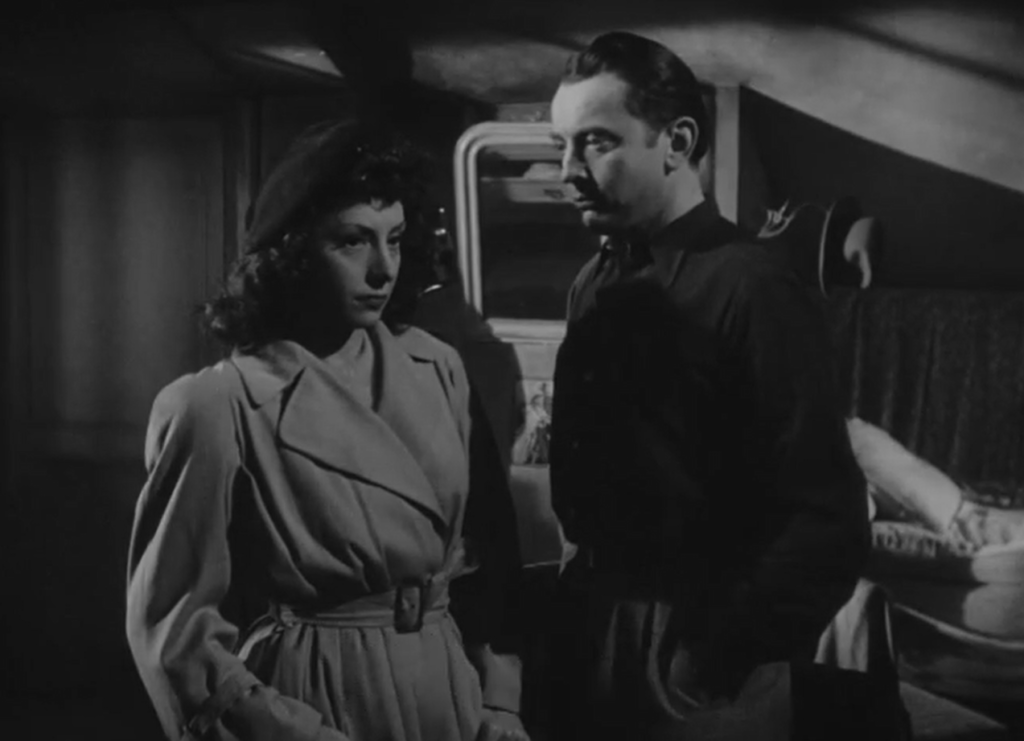
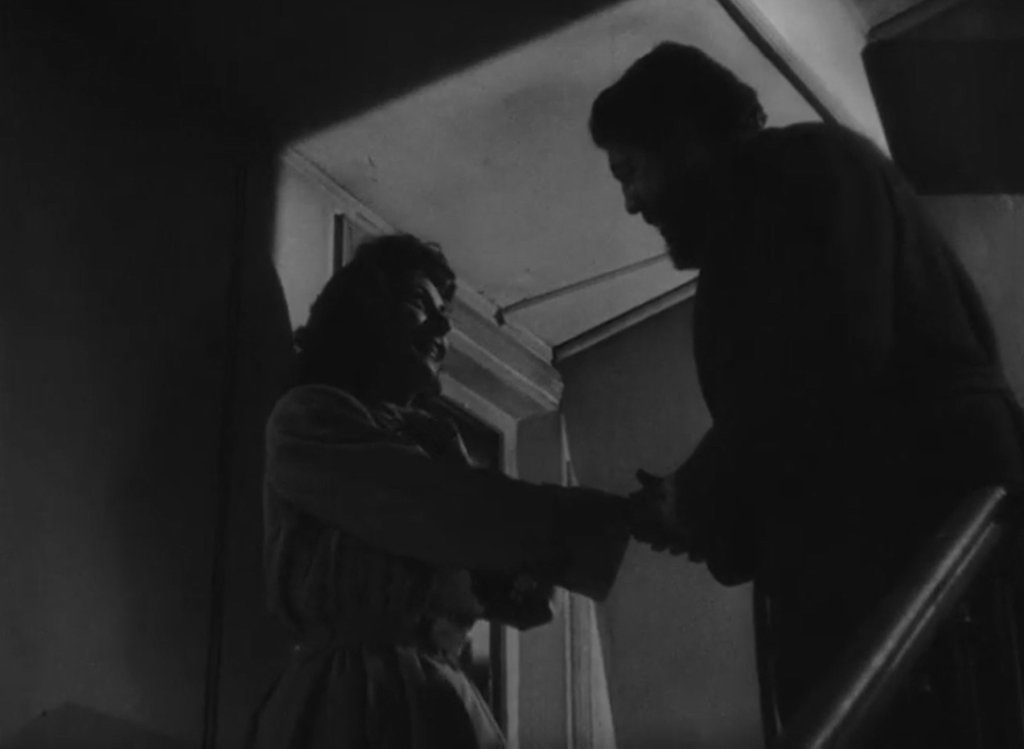
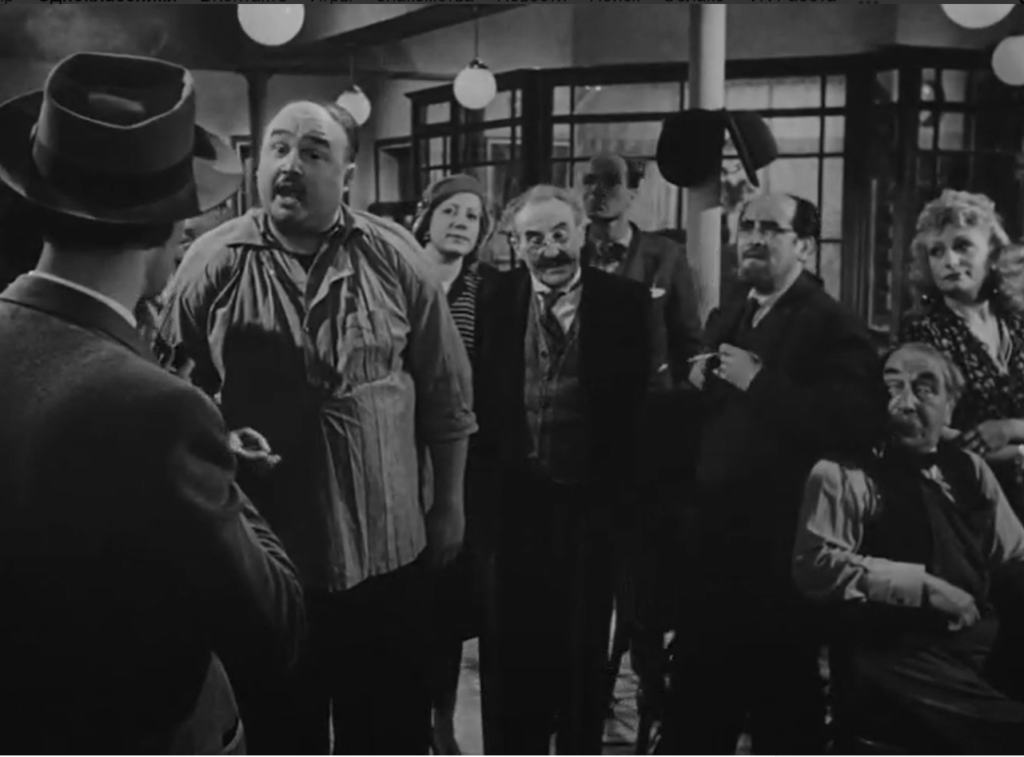
4 thoughts on “Panique (1946)”
First viewing (2/7/20). Not must-see. Although I generally admire the work of Duvivier, I can only half-heartedly recommend this particular film (even though I had been looking forward to finally seeing it) – mainly because it is a watered-down version of the superior Simenon novel, but also because it has been thrown into the shadow of that very rare thing: a remake that is a vast improvement. As per my comparison post in ‘The ’40s-’50s in Film’ (fb):
“You mustn’t love me. You can’t.”
‘Panique’ (1946) & ‘Monsieur Hire’ (1989): The Criterion DVD of Duvivier’s ‘Panique’ has an engaging extra of writer Georges Simenon’s son Pierre speaking (in English) about his father’s career… focusing on his attitude toward the film industry. It seems that, when Simenon’s work first began being adapted, the idea excited him. However… such experiences soon gave him the feeling of ‘too many cooks in the kitchen’ and, eventually, he preferred simply selling the rights as his only form of contact with the movie world.
That’s sort of evident with ‘Panique’, and that’s a shame. Based on Simenon’s ‘Mr. Hire’s Engagement’, the story is of a closed-off, eccentric man whose aloofness makes him not particularly liked. Because he’s such a question mark, his neighbors – as a group – find it plausible that he has murdered someone.
Director Duvivier made a number of fine films (his version of ‘Anna Karenina’ two years later – with Vivien Leigh – puts *both* Garbo versions to shame). But it seems that, in post-war 1946, the specifics of the 1933 novella were still too provocative to film as written. Things were changed around and watered down. The film is still… ok… and atmospherically done. But Simenon’s story is only there in fleeting bits or in shadow; its real face would have to wait.
~ until 1989, when Patrice Leconte remade the novella as ‘Monsieur Hire’. This stunning remake is almost astonishingly faithful to the source material. (It still leaves out a few juicy aspects but Leconte chose to make a film that would grip viewers non-stop for 80 minutes.) Michel Blanc and Sandrine Bonnaire star – and their performances are a tribute to the power of Simenon’s original story. And that ending!
I will definitely have to revisit “Monsieur Hire”!
I don’t think it will change my assessment of this earlier film, though — which for me had enough going for it to solidly recommend it on its own. (Though I haven’t read the original novel, which I know impacts that kind of thing.)
In general, we are always supposed to see novels and their screen adaptations as two completely separate animals. Perhaps I’m not alone in saying that I can do that quite often but, naturally, to varying degrees. It simply depends on what makes it to the screen.
There have, of course, been many times when I have not read the source material for something but have been quite taken with the film version – when, for all I know, the source may have been much better. As well, all of us probably know that so-so novels or plays have been turned into much better films.
Had I not read Simenon’s novel and had seen ‘Panique’ cold, my opinion may have been different. But, in this particular case, it was difficult to remove myself from how the novel had been compromised.
Just watched it and found it very entertaining. I saw Mr Hire over 30 years ago but can’t say it made a big impression on me. To me Michel Simon is the perfect actor for this role, as often, he is an unlikeable character but somewhere deep inside there is a person who does want happiness in his life.
Otherwise the direction of the film is spot on with a lot interesting angles. Pay attention when the nosy neighbours burst into Mr Hire’s room, it’s like they are literally trampling on his privacy. Another one, is the almost comical scene on how the body is discovered. I have seen other films by Duvivier but I found Panique one of his most stylish.
In the end it is a dark movie with a very bitter undertone. The contrast with the continuous fun fair music in the background couldn’t be more telling.
To give my opinion about reading source novels and then watching the film adaptation. I had read the Thirty-Nine Steps by John Buchan and then saw the Hitchcock film and was continually wrong-footed by the way it was filmed. Nevertheless both are great examples of their genre and let us just say, some the films are only inspired by the book but create a separate piece of art.